Although Christmas has dominated the holiday news lately, we cannot overlook that last week, the day after Christmas, yesterday, marked the first day of Kwanza. Based on a Swahili term meaning "first fruits," Kwanza, its principles grounded in African culture, lauds the beauty and meaningfulness of this world, its harvest, its bounty, its joy of a year rightly lived. The happiness of living in a world whose wonder speaks constantly to us, the beauty of the rhythms of the planet: a call to treasure the immensity of existence.
Wednesday, December 31, 2025
Monday, December 29, 2025
It's a very happy piece. I speak of Johann Pachabel's famous "Canon in D." Perhaps you've heard it at a wedding. The seventeenth century composer's deft blending of melody and rhythm has captivated humanity repeatedly. It's hard to listen to it without feeling at least a lilt of joy.
The Center for Faith and Culture at Yale University has devoted decades to understanding the nature of joy and human flourishing. Although its researchers recognize that theirs is a work that will always be one in progress, they have come to agree on a few things, which they have encapsulated in the Center's goal: "We seek a world in which every person can wrestle with life's most important questions and take hold of a life worthy of our humanity."

Put another way, to be able to contemplate existence and to find a meaningful life is central to being a human being. In this, the Center suggests, is true joy: to understand and flourish as we are intended to be.
But why? Because, the Center insists, we are made in the image of God. In this, perhaps we all should take a moment to step back and consider that, absent the presence of divine image in this world, we would probably not know what our joy fully is.
Friday, December 26, 2025
Christmas has come, and now it is gone. People are taking their ornaments down, stores are offering their after Christmas sales, travelers are going home. It's over for another year.
Or is it? If Christmas means anything, anything at all, it cannot possibly be contained in one day. If the Creator has come, how can anything--and any of us--ever be the same? History, and everything in it, including you and me, has irrecoverably changed.Wednesday, December 24, 2025
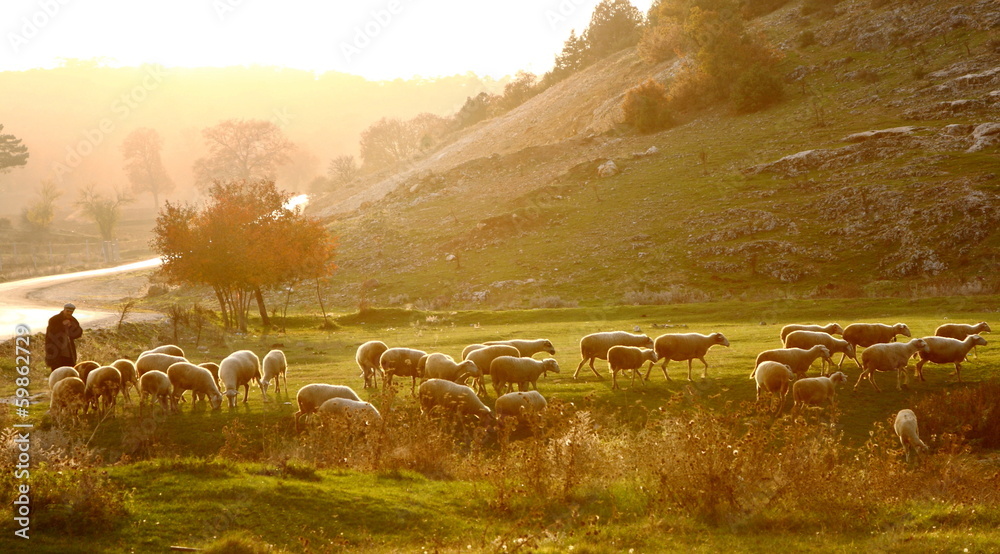
Most of us have heard the "Christmas story" countless times. Across the world for thousands of years, people have read and pondered, over and over, Luke's account of Jesus' birth. One might almost think that there is nothing new to find in it.
But there always is. As I was reading it this year, I found myself struck anew by the thought that the first people to hear about Messiah's birth were shepherds. In Jesus' day, shepherds were despised, viewed as the lowest of the low, the modern day equivalent of the Roma of Europe. Few wished to associate with them. They spent their days--and nights--largely apart from the rest of the people, living lonely lives in the fields and hillsides of the nations.
But the shepherds were the first to know. They were the first to be told. Before anyone else knew, the shepherds knew about the birth of Messiah.
God remembered those whom the world had forgotten.
Christmas reminds us that when all is said and done, we should understand that God, the vastness of personal transcendence, is not about greatness. He's about humility.
And love. Love for a humanity who had dismissed and fogotten about him.
Monday, December 22, 2025

"Nature is extremely subtle. I happen to think that the depth of natural substances cannot be fathomed by mankind. Because after all we only have, let's say, 100 billion neurons. How can you match that with the infinite depth of nature?" -- Chen Ning Yang
Chen Ning Yang, one of China's greatest physicists, passed away last month. His death was acknowledged by leading physicists across the globe. Chen's contributions to his field will reverberate for many decades to come. For good reason. Consider the quote above. Though I do not know Chen's position on spirituality or the transcendent, I appreciate the essence of his observation. Whether we attribute our beginnings to the "infinite depth of nature" or a transcendent presence, that is, God, we will forever try, and always fail, to understand the precise character of the natural world. We may understand how it will works, we may uncover the physical laws that govern it, but we will never grasp, fully, what it really is.
How can we? We're thoroughly human, finite bits of particles and neurons. We cannot expect to comprehend, in this life, the point of what made us.
Are we therefore happy that we're here?
Sunday, December 21, 2025
If you live in the Northern Hemisphere, you may know that today, December 21, is the winter solstice. The "shortest" day of the year. Or as Robert Frost puts it in his "Stopping by Woods on a Snowy Evening," "the darkest night." Happily, although it may not seem like it, the winter solstice is actually the grand turning point of the year, the day and night in which time and light begin to grow. It's the end of the light, yes, but its genesis, too. We lose, yet we win, moving, ever so slightly, toward the greater light to come.

Tuesday, October 14, 2025
1492. It's one of the most pivotal years in human history. Humans of two hemispheres, neither of whom had been aware of the other, suddenly were, almost overnight, finding themselves confronting worlds that, literally, blew their collective minds. No one would ever be the same.
Sadly, however, although 1492 may have been a momentous and lucrative year for many Europeans, it was a terrible one for the natives of the Americas. Hence, although earlier this week the U.S. recognized Columbus Day, some have suggested that it is perhaps more appropriate to term it "Indigenous Peoples Day." After all, it is the natives of the Americas who, far more than the Europeans who slaughtered them, deserve to be remembered. It is they who have suffered most.
The worst of it is that in too many instances this slaughter was justified in the name of Christianity. It was an awful stain on the love of God.
Historian Erna Paris once observed that, "Attaching God to history is the most powerful nationalism of all." Whenever we try to juxtapose God and the history we are unconsciously creating, we erect a line we cannot possibly cross: the boundary between what is here, and what we think should be, the difference between the visible speculations of finitude and the hidden certitudes of infinity. We falsely think we can speak for God.
Whatever your perspective, use this week to remind yourself of your so very limited view of what is real and true.
Monday, October 13, 2025
In this era of the so-called Robber Barons of the technology industry, one might think of F. Scott Fitzgerald's Great Gatsby. It's a story of hubris, massive and myopic social hubris driven by an equally blind financial hubris, two currents of a mistaken pride that overturned a life to a point beyond redemption.
Some of you may work in the technology industry, some of you may hold stock in the technology industry. All of us benefit from knowing and using it. Even as I write this blog, I am acutely aware that I would not be able to do so without the help of Google and its parent company Alphabet. And I wager that many of you order items from Amazon with some degree of regularity, and appreciate its seemingly efficient service.
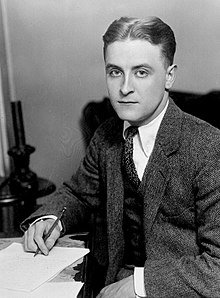
Few of us take time to look beneath the surface of the industry. Neither did Gatsby take time to consider the implications of his financial and social success. He just lived in them, repercussions and consequences aside. As do, to a point, many of us. We do not often take stock of how thoroughly dependent we are on industries that, although they proclaim to be making our lives better, rarely do they allow us to stop and deliberate about what "making our lives better" really means. As they define it?
Fitzgerald's enduring masterpiece reminds us that yes, we all appreciate social connections and technological ease, but it also reminds us how little we know where they will, in the long run, lead to. How are we to measure the fruits of worldly "success"?
Surely not by the success itself. Because Gatsby valued his world by the values of that world, he fell, badly. As will, unless we look up from our busy lives, we.
Ease of living is not the point. Meaningfulness is bigger than next day delivery.
Wednesday, October 1, 2025
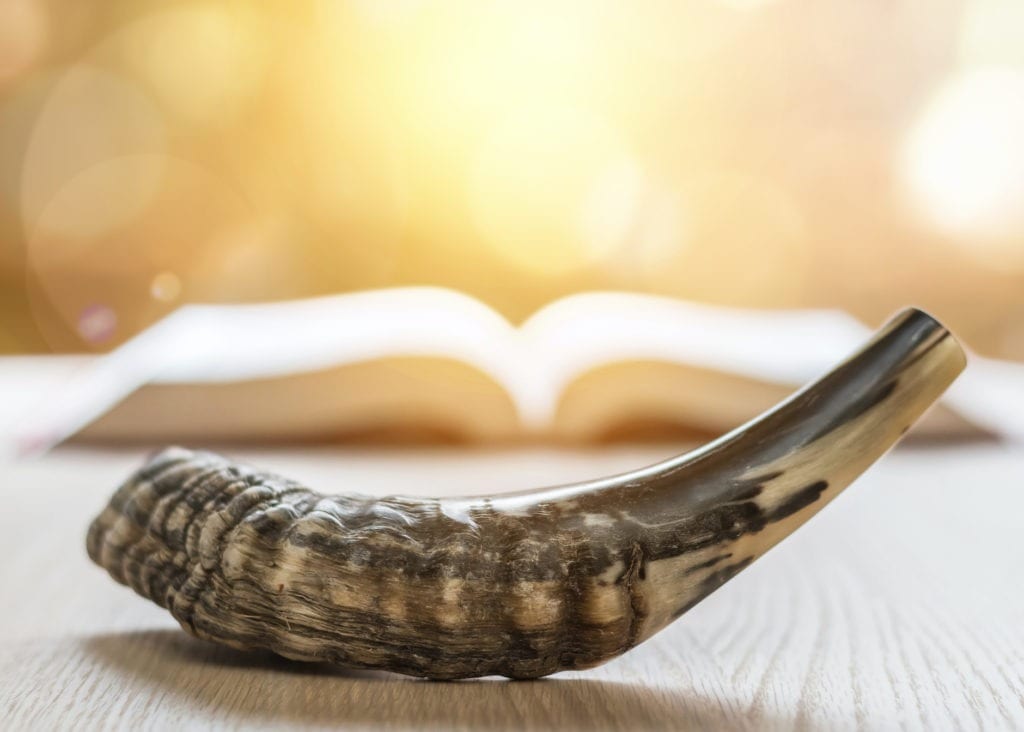
If we are honest with ourselves, we will admit that we do not always do the right thing. No one among us eludes our own fallenness. We all, as many religions put it, sin. We all do not always do what pleases or sustains the divine fabric of the universe.
Few religious groups understand this as well as the Jews. Beginning tonight, Jews around the world celebrate Yom Kippur, the "Day of Atonement." On this night, Jews acknowledge their sinfulness before God. They admit their wrongdoing, own up to their prevarications. And they repent. They tell God they are sorry for disobeying and violating his commandments and laws. Then they announce their intention to begin anew to live lives that please their creator.
So the Jews have done for many centuries, and so they will do for many centuries more. Their faith remains.
Although we may not agree with the specifics of the Jewish approach, and though we may not see wrongdoing in quite the same way, we must all admit that, to repeat, we do not always do the right thing. Every one of us is (or ought to be) aware that, at times, he or she upsets the delicate balance of freedom and order that governs the cosmos.
Moreover, if this balance is to be more than relative, we must acknowledge the fact of God. The Jews recognize this clearly. So do Christians, and so do Muslims. And so do adherents of countless other religions. Absolute and therefore genuinely meaningful morality is impossible without God. Otherwise, repentance is no more than shouting in a situational darkness, the darkness of an accidental, and therefore, as scientist Steven Weinberg observes, pointless universe.
Tuesday, September 30, 2025
The movie "God on Trial" (based on an Eli Wiesel book, The Trial of God) depicts a conversation that a group of inmates at Auschwitz, the infamous Nazi concentration camp, had about, in light of the suffering and pain they were experiencing, whether God had broken his covenant with the Jewish people. Does he really care about them? An unbeliever who in his former life had been a judge agreed to preside over a trial that would address this question.

Quite true. In the end, regardless of what is going with us or the world, we can either choose to believe in God or we can choose to not believe in God. To do the former means we believe that, somehow, some way, the world has purpose, and that somehow, some way, whatever happens does, too. Nothing more, nothing less. But the latter means that, whatever we think life may be, it, and we, have no purpose at all.
Which do you prefer?
Monday, September 29, 2025

Friday, September 5, 2025
It's a bit late, but I offer a prayer for Labor Day:
"God the Maker, help us to look with love and renewed wonder at all the things that exist in part or in whole through the creativity and toil of others and ourselves. Shelter, food, clothing. Entertainment, literature, music. Medicine, vaccines, technology. Personal care for those of any age. Transport of people and goods, delivery of food and clean spaces. Each day help us remember those who grow our food and ship it to us, who build our houses, sew our shirts, take our garbage, build our cars who feed us and bathe us. And spur in us a hunger, O God, to honor all those who labor, to act for their just working conditions, to demand fair wages and protection, to join them in raising up a more just world. You call us to mourn and act when the vision of Isaiah 65 is sinfully reversed, when people build houses in which they are not allowed to live; plant food, but go hungry; bathe our sores, but can't afford their water bill. Let our gratitude for each one's service spur us to secure justice for each one's dignity." (Julie Polter)
Amen.
Thursday, September 4, 2025

Creator of the novel Frankenstein (when she was but in her early twenties), Mary Shelley led a highly fascinating and somewhat tragic life. Her father was the anarchist author William Godwin, her mother Mary Wollstonecraft, author of A Vindication of the Rights of Women (and who died shortly after giving birth to Mary). She was also married to the outspokenly atheistic poet Percy Shelley until he tragically died in the Bay of Spiza in Italy in 1822.
Although most people believe Mary Shelley wrote Frankenstein to critique the Industrial Revolution's focus on the life of the mind while overlooking the supremely important place of the heart, and she did, there might be more to the story. More precisely, Frankenstein is a parable about the limits of humanness. In the person of the "monster" (who turns out to be far more intelligent than the 1931 Hollywood movie makes him out to be), Shelley provides an incisive narration of the ultimate emptiness of the human condition. She powerfully demonstrates that for all of its magnificence, humanity is finally as confused and shallow as the world over which it purports to rule.
Dr. Frankenstein's words, in the movie, upon seeing the "monster" move its hands, exclaims, "Now I know what it feels to be God!" speaks volumes about Shelley's vision. What would we do, really, if we were God? Would we create the world as it is, or would we do something entirely different? And how would we know either way?
Can any of us bear the burden?.
Wednesday, August 27, 2025

Recently, my wife and I saw an amazing performance of piano virtuosity. The piece was Rachmaninov's Piano Concerto #2, the pianist was Nobuyuki Tsujii. The amazing thing was that Nobuyuki was born blind. But this didn't stop him. Recognizing his incredible gift for music early on, his parents and mentors ensured that he got all the training he could. Today he performs all over the world.
As I watched and listened to Nobuyuki play, I marveled at the remarkable display of human ability before me. I also marveled at the way in which, despite being born handicapped into a broken and bent world, Nobuyuki found redemption in his musical talent. Though the world sometimes undermines us, the intentionality with which it has been created grants that what breaks us can also redeems us.
Redeems us not just for us, but for the entire planet. We just need to wait for it.
Tuesday, August 26, 2025
A few weeks ago, I was hiking in the Sierra Nevada of California. I try to go there every year. This year, I met my youngest sister and we camped at the same campground at which we had camped as small children, many, many years ago, with our two other siblings and mother and father. It was a stroll down memory lane. A good one.
Although we visited the same swimming holes and had some of the same ice cream at the same camp store, we took some hikes we had not done as children. In one of them, we drove twelve miles down an unpaved road just to get to the trailhead. From that point, we set out into some remarkably spectacular country. We saw no one. As we passed by a set of lakes many miles from the trailhead, we caught glimpses of the Sierra of yore, the bucolic stretches of rock, tundra, and sky that characterize its higher elevations. It was good to be "home."
Which is the point. Nearly thirty years ago I heard a message about starting points and home. We all have a starting point. Sometimes it is one we remember, sometimes not. Sometimes we have positive feelings about this point, other times, not nearly as much. Divining the meaning of our beginnings is therefore difficult: we will never know why we began where and when we did.
But isn't that the point? We're born in a mystery, a mystery which we cannot begin, in this life, to unravel. And that's fine. How shallow would our lives be if we could reduce them to complete rationality!
Thank goodness for the wonderment and imagination of an unfettered and personal universe.
Monday, August 25, 2025
Ah, August. As this most glorious month winds to its conclusion, I think occasionally of some words of writer Patricia Hampl. In talking about her younger years, she asked, "Is this a happy childhood--the unfettered experience of the strangeness of existence, the pleasure of being caught up in the arms of creation?"
In many ways, August evinces the "strangeness" of existence. Its effusiveness of life belies its silent and underlying prelude to and anticipation of the coming autumnal "death." But existence cannot be any other way. Even Eden had days and nights. We love the shimmering glow of August even as we may cower before what follows it.
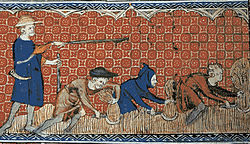
Yet August's demise is hardly cause for alarm. It is rather a call to rejoice. To rejoice in the incredible rhythms of a simultaneously strange and wondrous creation. To rejoice in a creation which could only have been set into motion by an equally befuddling and wondrous God.
That's the glory, that's the mystery. And that's the vexation. But would we really want it any other way?
Friday, August 22, 2025

Friday, July 25, 2025
"Do not rejoice at your enemy's misfortunes," a Hebrew proverb says, "but want the best for him." Or God will bless him anyway.

In this era of highly polarized political dialogue and disputation, avoiding what we might call Schadenfreude (taking pleasure in the misfortunes of those with whom we may disagree) is difficult. However, it seems to be the only way forward. We demean ourselves if we suppose our integrity to be ours, and ours alone. There is always a bigger picture.
And we do not paint it. Although it may be easy enough to say that, well, one day God will judge all things and hold everyone accountable for his or her deeds, I'm not sure this resolves the issue. We do not live in the "later;" we live in the here and now.
Yet unless there is a bigger picture--and a larger vision of newness--we have no business judging anyway.
Wednesday, July 23, 2025
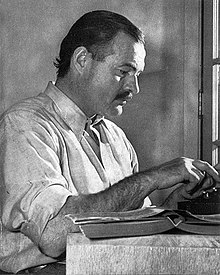 |
| Ernest Hemingway |
Isn't truth a funny word? Most of us appreciate it, most of us desire it. Very few of us, however, can define it. Philosophers tell us there are essentially two ways of looking at truth. The correspondence theory suggests that truth is simply that which corresponds to reality. While this seems logical enough, it raises other questions: how do we know what is real and how do we therefore know what corresponds to it?
Taking a different tack, the coherence theory holds that truth is the sum total of what seems apparent, logical, and right. Truth is not fixed but is rather what appears to be most correct based on the prevailing evidence. Yet how do we decide what is most correct and right?
Though I see virtue in both perspectives, I won't try to reconcile them now. I merely wish to make an observation about the necessity of truth. When we insist that truth is relative or a creation of the moment, we are essentially saying that truth does not exist. If so, we have no good reason to hold that even we exist. If nothing holds, if nothing is sure, then neither are we.We need truth to be truth. Otherwise, we became like the protagonist of Ernest Hemingway's Farewell to Arms, who, in the final scene of the novel, when he has just watched his wife die giving birth to his child, and then stood by as the child died, too, "put on his hat and walked into the rain."
Monday, July 21, 2025

He's most famous for his painting "The Scream," his portrayal of, as his biographer Sue Prideaux puts it, "the loss of meaning inflicted by the death of God." But the Norwegian painter Edvard Munch had some insightful things to say about suffering.
"I must retain my physical weaknesses; they are an integral part of me. I don't want to get rid of illness, however unsympathetically I may depict it in my art . . . My fear of life is necessary to me, as is my illness. Without anxiety and illness, I am a ship without a rudder. My art is grounded in reflections over being different to others. My sufferings are part of my self and my art. They are indistinguishable from me, and their destruction would destroy my art. I want to keep those sufferings."
And, "What is art, really? The outcome of dissatisfaction with life, the point of impact for the creative force, the continual movement of life . . . in my area I attempt to explain life and its meaning to myself."
However tragic we may consider "The Scream" to be, we can certainly thank Munch for his erudite perception of the importance of malaise and hardship in the formation of a wise human being.
God is working even when we may not believe he's there.
Wednesday, June 18, 2025
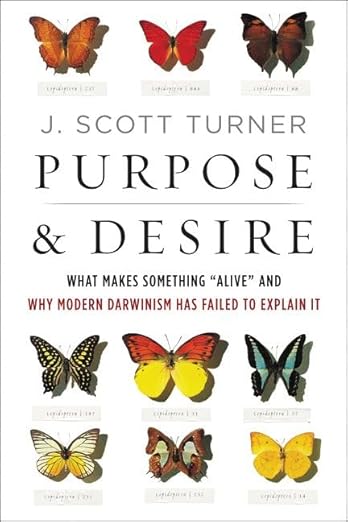
I've always wondered about the penchant of those who ascribe a totally material origin to the universe and yet insist that purpose is to be found in it. Somehow, it doesn't add up.
Making some of the same arguments that atheist philospher Thomas Nagel made in his 2012 Mind and Cosmos: Why the Materialist Neo-Darwinian Conception of Nature is Almost Certainly False, physiologist and biologist J. Scott Turner, in Purpose and Desire, a book he published about ten years ago, wonders why, too. Why do we believe we have purpose if we live in what Darwinian evolution decrees to be a meaningless world?It's tough. Clearly, every living thing behaves as if it has purpose, be it a purpose to eat, to seek safety, to reproduce, even to consider the nature of existence. Yet why would wholly material beings come to think of such things? Can chemicals desire? Can chemicals think?
Tuesday, June 17, 2025
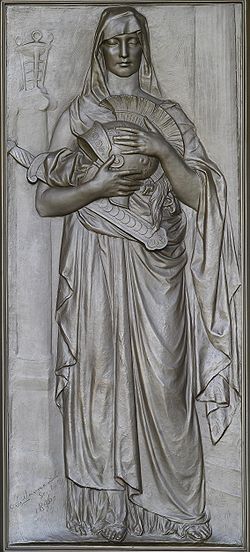
Arlington Cemetery, which at 624 acres is one of America’s largest, is a study in valor and pain, a portrait of bravery, solace, and privation, the nation’s most revered place for the final earthly repose of those who have served in the five branches of America’s military. For many, it is sacred ground, a hallowed site, one on which those who visit it tread with enormous respect and care.
Monday, June 16, 2025
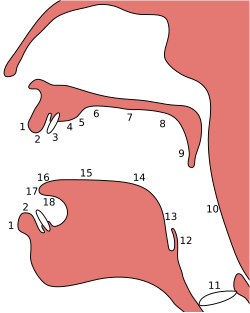
Because we have been created with speech, the meaningful speech of a meaningful creator who freely chose to speak us and the cosmos into being, we have more meaning than we can possibly imagine. Moreover, we know that because the creator is meaningful from afar, it is far more so when set before us.
And it has. This means that we will see and grasp everything--not all things--we need to know. To understand that one day, life will no longer be a frustratingly finite and heartbreakingly terminal mystery. We will know.
Yet it all begins, as does everything else, with speech. So, speak. Speak and experience who you are, speak and experience who you can be, speak and experience the truth about the way the world is made.Thursday, June 12, 2025
Do you remember the Bee Gees? Although they perhaps achieved their greatest fame during the run of disco music in the Eighties, they had been making (and continued to make) music for many other years as well. Yet for all their success, their lives have been marked by immense tragedy. I was reminded of this anew as I read a profile about Barry Gibbs, the only remaining Bee Gee. He tells a sad story of losing not one, not two, but three brothers. First to go was Andy, dead at age 30 of heart inflammation. Next was Maurice, gone at 53 from a heart attack. Finally, there was Robin, who died in London, somewhat older at 63, from cancer in 2012.
Wednesday, May 28, 2025
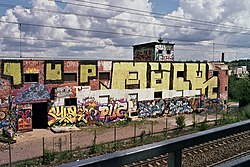
For decades, cities (and countless freight train companies!) around the world have wrestled with the issue of graffiti. Is it art? Is it vandalism? Is it both? As anyone who has looked at graffiti with a dispassionate eye can attest, some graffiti is indeed art, some very fine art done by some very talented people. Other graffiti is of course not worth remembering. It's often an expression of personal displeasure or scorn, fit only to be painted over.
At its core, however, graffiti is a picture of the human imagination. And imagination is, by its very nature, the path to what is beyond it.
In the story of Jesus' raising of Lazarus, recorded in the eleventh chapter of John's gospel, we read that before Jesus raised the dead Lazarus, he asked one of his sisters, "Did I not say to you that if you believe, you will see the glory of God?" In other words, Martha, let go of what you think and focus on what you believe. Allow your imagination to run freely, to run even beyond you.
Clearly, the raising of Lazarus is many miles from the intentions behind graffiti, but they both speak to the same point: we must learn to look at what we see through the lens of human imagination and the lens of a belief that imagination is only the beginning.
With our eyes only, we'll never see it all.Friday, May 2, 2025
"The heavens are telling the glory of God," says the psalmist, "day by day and night by night." But, it adds, "there is no speech."
 It is this enigmatic passage that Austrian musician Joseph Haydn set to music. Although Haydn was very much a creature of the Enlightenment, he remained fully committed to the presence of a transcendent God. Haydn wrote of God, and he found comfort in God.
It is this enigmatic passage that Austrian musician Joseph Haydn set to music. Although Haydn was very much a creature of the Enlightenment, he remained fully committed to the presence of a transcendent God. Haydn wrote of God, and he found comfort in God.But this isn't my main point. It is rather to say that those who believe in God frequently find the richest way to express their beliefs in what Matthew Arnold called the "perfections" of culture. That in the greatness of humanness, divinity often finds its most profound manifestation.
After all, did not the Word become flesh?
Friday, April 25, 2025
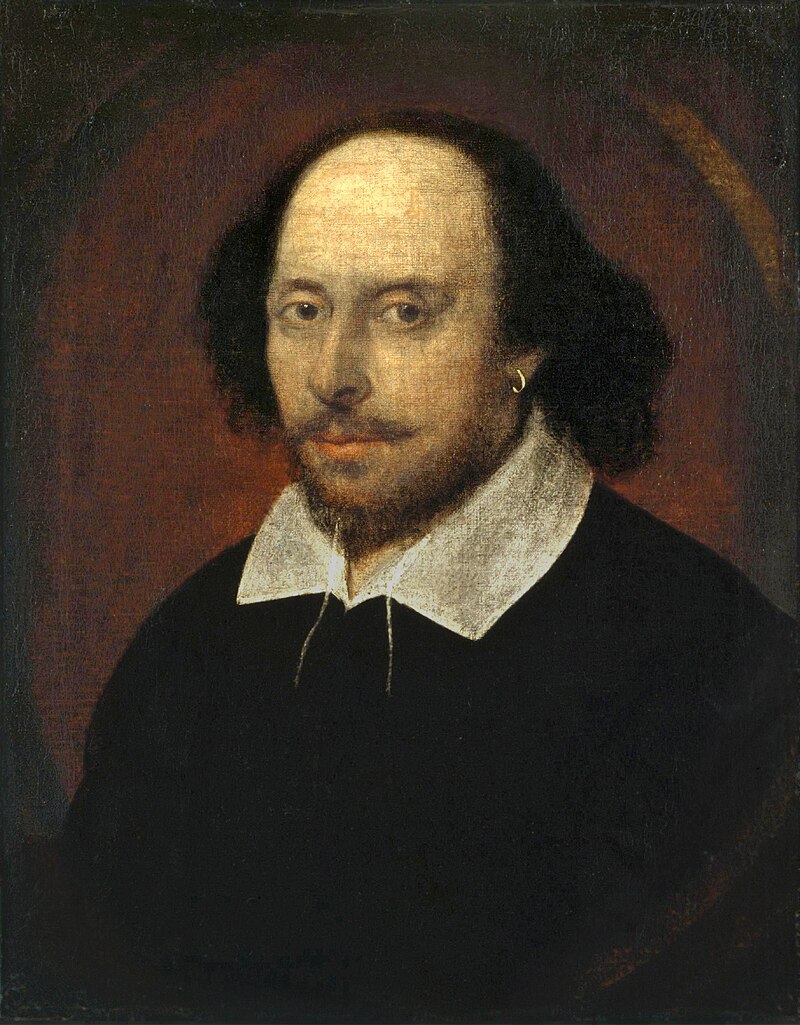
"To be or not to be, that is the question: whether 'tis nobler in the mind to suffer the slings and arrows of outrageous fortune, or to take arms against a sea of troubles and by opposing end them."
So wrote the Bard of Avon, otherwise known as William Shakespeare, generally acknowledged as one of the greatest playwrights who ever lived. Ah, Shakespeare: we marvel at his ability to write such striking and memorable poetry and prose. We are awestruck at his insight into the human condition, at his ability to create such stunning portraits of humans at the peaks of triumph and the nadir of despair. At his remarkable capacity for capturing life, for divulging the intimacies of what it means to be a human being.
To be or not to be? Do not we all ask ourselves this at some point? Do not we all wonder why we are here? What we should do? Why will it end?Thursday, April 24, 2025
With millions of people around the world, I mourn the passing of Pope Francis. Yes, he made some mistakes, and yes, he said some things he probably should not have said. But Francis loved God, and he loved all the people he made. He turned no one down, he turned no one away. He sought to build a church that welcomes all, a church that is more concerned with inclusivity than doctrinal rigidity, a church that strove to, above all, let people know that God loves them.

In addition, due to his position as the head of the largest Christian denomination on the planet, Francis had a degree of fame greater than all other spokespeople for religion. He thus had extraordinary opportunities to tell the world that, whether people believe it or not, God indeed exists, and that he loves all people who do as well. Francis kept the light of God at the forefront of the human imagination.
For this, we should be grateful. As the world continues on its merry (and no so merry, too) way, we all do well to remember the bigger picture. That over and above all, there is a God who is infusing the entire cosmos with lasting point, purpose, and love. Meaning prevails, hope remains. Always.
Rest well, Francis.
Wednesday, April 23, 2025

“I have not an ounce of religious conviction in my body, yet I still feel the urge to fight with the forces of unknown walls. It has almost become a necessary part of life for me, to always look for the next challenge, the next triumph, the next conquest, to feel happiness again, even if only for a moment, and think that, well, history may never have been, so shall we always remain suspended in the present.” And "all that remains is to embrace the obstacle and the unknown, to fight for meaning, to encounter and fight through fear and dread, to conquer all."
So said mountaineer Dougal Haston. Born in Scotland, he learned to love mountains and climbing them very early in his life. Strong, agile, and gifted with incredible stamina, he soon made his mark across the globe. In the Alps, he joined an epic first direct winter ascent of the north face of the Eiger. Later, he scaled the southwest face of Mt. Everest, the first person to do so (without oxygen), even spending, with his partner, a night just below the summit.
And he survived. But in October 1976 he left his house in Switzerland alone to ski a mountain face, a very dangerous mountain face, on which he had long set his sights. While he was on it, the snow on the face avalanched, and he died.
His body was found the next day.
Some might see Dougal's words as the enduring human call to wrest meaning from a seemingly pointless reality. Others will view them as the picture of futility, a senseless effort to find meaning when there is none to be found. In a way, however, it's both. We all live, we all die. And we all look to make those years meaningful.
Hence, the ultimate question is this. Will we seek to encounter the meaning that is necessarily there, or will we strive to find the meaning that, absent viable genesis, will never be found?
Tuesday, April 22, 2025
Today is Earth Day! Established in 1970, Earth Day is a day on which we think anew about the wonder and fragility of the tiny globe on which we spin through this vast, vast cosmos. Earth Day is a call to attend to the ecological balance of the world.
Many, however, deride Earth Day. The reasons for their rejection are various: religious, political, and economic. And more.
Monday, April 21, 2025
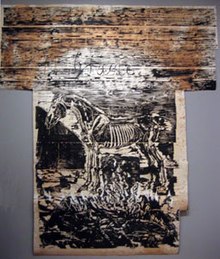
"If there were no death, there would be no rebirth," the German artist Anselm Keifer once said. Quite. Keifer's observation recognizes the embedded rhythms of the universe. Throughout the breadth and depth of the cosmos, nothing, be it a star, lion, or human being, can be born without someone or something, somewhere and somehow, experiencing death, of some kind.
For anyone familiar with the second law of thermodynamics, which tells us that the total amount of matter and energy in the universe is constant, and that therefore when energy is lost, matter gains, and vice versa, this may not be a big surprise. On the other hand, the immutable factuality of this law simply affirms Keifer's point: unless we live in a completely static universe (and what kind of a cosmos would that be?), we will confront, every moment of every day, this cycle of death, in some fashion, and, in some similar fashion, rebirth.
Is some process of resurrection therefore imprinted into the fabric of the cosmos? Absolutely. Resurrection between matter and energy, however, is one thing; resurrection into an totally new life is quite another.
Therein is the greatest mystery of all. One in which, however, we all can rejoice. There really is, as one commentator once said, "Life after life after death." Absent this, it's a pretty empty world.
Friday, April 18, 2025

"I went down to the countries beneath the earth, to the nations of the past; but you have brought up my life from the pit, O Lord, my God." The Hebrew prophet Jonah, he of being swallowed by a whale fame, understood life well: so is the fate of all nations. None will last forever; none will endure indefinitely.
As I try to come to grips with the fact of Good Friday, the day of absolute nadir and blackness, the moment in which time itself ran away, the point when all that we love tumbled into the heart of the lingering darkness that it ultimately is. It's a heartbreaking picture of the underbelly of all form and evanescence. So I wonder about Jonah's words. We will not know what death is like until we die. And we will not really know life until it is gone.
Tuesday, April 15, 2025
It's Holy Week. Holy Week is about suffering, helplessness, and pain. It's also about joy, pure and holy joy. Holy Week takes us into the deepest of darknesses, yes, but it also takes us into the most profound of all light.
Holy Week tells us that the end of the story is that on which we must focus most. Indeed, pain is part and parcel of our lives. But only part. In Jesus' suffering, we see ourselves. And he us. But it is in Jesus' resurrection that we ought to see ourselves even more. It is in that pivotal moment, that epochal moment in which God conquered death that we must look. For it is in it that we see our future best.
And God is God. Though disaster fills this world, God's power fills it even more.
Monday, April 14, 2025
Last Saturday night was the first night of Passover. It is a solemn moment, yet one filled with rejoicing. At its core, Passover is about the faithfulness of God. It remembers how, many centuries past, God liberated the Hebrews from a four hundred year captivity in Egypt, delivering them, eventually, into the promised land. For this reason, around the world, millions of Jewish families gathered for the seder meal, the meal whose various components point to liberation.
And what is liberation? It is to be free. Physical freedom, yes, but more significantly, spiritual freedom: redemption.
It is redemption that lies at the heart of Passover. And in this is an object lesson for all of us. Though we treasure physical freedom, unless we experience spiritual freedom as well, we are spinning our wheels: we can win the world, but we cannot win ourselves.
There is more to us than we think.
Friday, April 11, 2025

"We must keep dreaming, for dreams are what we use to celebrate life." This is a line from Giacomo Puccini's opera La Boheme, which he wrote in the late nineteenth century. Do not we all have dreams? Do not we all use our hopes? Do not we all dream to magnify our joy of life, to move ourselves forward to more good times as we live out our days?
Absolutely. Alone among the animals, human beings have the capacity to think beyond themselves, to imagine beyond their boundaries, to summon thoughts that do not seem logical at the moment, thoughts and longings that move them to strike ever deeply into the many unknowns and possibilities that life lays before them. To celebrate life constantly.
Dreams are the essence of life. Remove them, and we implode and crater; we become less than human. Ironically yet so fittingly, however, continuing to dream also leads to great frustration and angst. When we cannot fulfill our dreams, we may crater, too. But better that we dream than not, for as Puccini's character reminds us, the moment we stop dreaming, we stop living.
Bottom line, we cease to recognize the power of the living imagination from which we have come.
Wednesday, April 9, 2025
In a broken world, a world in which things do not always go as we wish them to, a world marked by tremendous joy and tragedy alike, we humans are prone to long for control. Why can we not control the affairs of our lives? Why can we not ensure that we are not surprised by darkness?
 In this season of Lent, we have opportunity to rethink our longing for control. Lent is all about giving up. We give up our time, we give up our pursuits, we give up our lives, we give up control. We recognize that we live in a world beyond our control. We acknowledge that if we try to control everything, we will inevitably end up creating a world of us and us alone, a world without any real point except poor little us. We reduce ourselves to a collection of atoms spinning madly in a nexus of space and time, avoiding everything but ourselves.
In this season of Lent, we have opportunity to rethink our longing for control. Lent is all about giving up. We give up our time, we give up our pursuits, we give up our lives, we give up control. We recognize that we live in a world beyond our control. We acknowledge that if we try to control everything, we will inevitably end up creating a world of us and us alone, a world without any real point except poor little us. We reduce ourselves to a collection of atoms spinning madly in a nexus of space and time, avoiding everything but ourselves.




